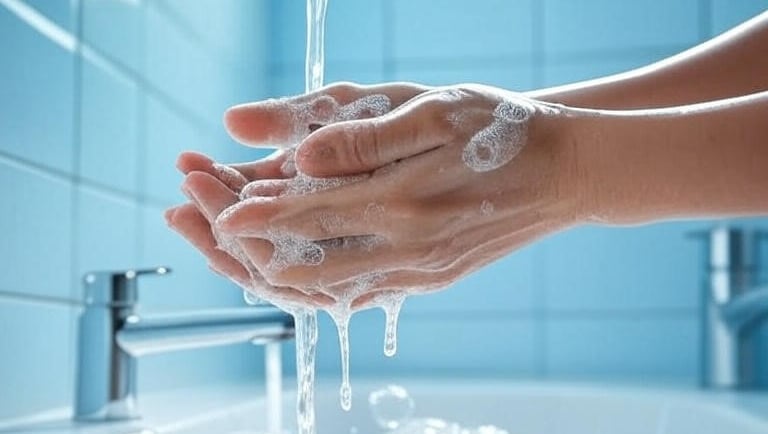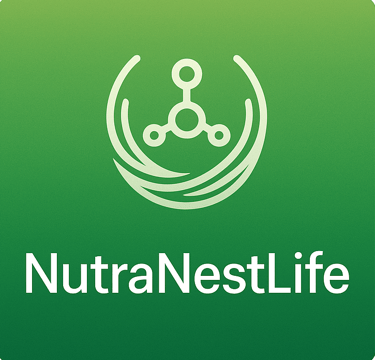Nationwide DermaRite Hand Soap Recall: Protect Against Burkholderia Cepacia Risk
DermaRite recalls hand soaps nationwide due to Burkholderia cepacia contamination, risking life-threatening infections. Learn safety steps and affected products.
HEALTH NEWS
8/14/20256 min read


Urgent Nationwide Recall: DermaRite Hand Soaps and Cleansers Contaminated with Burkholderia Cepacia – Full Details and Safety Guide
In a concerning development for consumers and healthcare providers alike, DermaRite Industries has issued a voluntary nationwide recall for several of its popular antiseptic and antimicrobial hand soaps and cleansers. The recall, announced by the U.S. Food and Drug Administration (FDA), stems from microbial contamination with Burkholderia cepacia complex (Bcc), a resilient group of bacteria that can lead to severe infections, including life-threatening sepsis in vulnerable individuals. This alert affects products distributed across the United States and Puerto Rico, prompting immediate action from users to check their inventories and dispose of affected items safely.
As a blog dedicated to health, safety, and consumer awareness, we're diving deep into this recall to provide you with all the essential information. We'll cover the background of DermaRite Industries, the specifics of the contaminated products, the health risks posed by Bcc, steps to take if you own these items, and broader tips on maintaining hygiene to prevent similar issues. Whether you're a parent, caregiver, or healthcare professional, understanding this recall is crucial for protecting yourself and those around you.
Who Is DermaRite Industries?
DermaRite Industries, LLC, headquartered in North Bergen, New Jersey, is a leading manufacturer of high-quality skin care, advanced wound care, and nutritional supplements tailored primarily for healthcare and senior-care facilities. Founded with a focus on supporting caregivers and patients, the company emphasizes innovative solutions that promote healing and hygiene. Their product lineup includes categories like Renew™ Premium Skin Care, which features skin cleansers, moisturizers, perineal cleansers, and skin protectants, alongside specialized wound care items under brands like ProHeal.
DermaRite's mission revolves around enhancing patient outcomes through reliable, effective products that address everyday challenges in medical settings. They pride themselves on collaborating with healthcare professionals to deliver modular nutrition and infection control solutions. While the company has built a reputation for quality, this recent recall highlights the vulnerabilities even established brands face in manufacturing processes, particularly with microbial contaminants.
Notably, as of the latest updates, DermaRite's official website does not prominently feature details about the recall, but the company has been proactive in notifying distributors and customers via email. This underscores the importance of staying informed through official channels like the FDA for timely safety alerts.
Understanding Burkholderia Cepacia Complex (Bcc)
To grasp the severity of this recall, it's essential to know what Burkholderia cepacia complex is and why it's a significant threat. Bcc is a group of bacteria naturally occurring in soil and water. While it poses minimal risk to healthy individuals, it can cause opportunistic infections in healthcare environments, particularly among those with compromised health.
According to the Centers for Disease Control and Prevention (CDC), Bcc infections can manifest with a wide range of symptoms, from asymptomatic cases to severe respiratory issues. Common signs include fever, fatigue, persistent cough, shortness of breath, and wheezing. In patients with cystic fibrosis or chronic lung diseases like COPD, Bcc can exacerbate existing conditions, leading to chronic infections that are hard to eradicate.
The risks are heightened for vulnerable populations:
Immunocompromised Individuals: Those undergoing chemotherapy, living with HIV/AIDS, or on immunosuppressive drugs are at greater risk of systemic infections, including sepsis – a life-threatening response where the body attacks its own tissues.
People with Chronic Lung Conditions: Cystic fibrosis patients are particularly susceptible, as Bcc can colonize the lungs and resist multiple antibiotics.
Healthcare Settings: Transmission often occurs via contaminated products, equipment, or person-to-person contact, making hospitals and care facilities hotspots.
Bcc spreads through exposure to contaminated water, soil, surfaces, or medical devices. Treatment typically involves antibiotics, but many strains are multidrug-resistant, complicating recovery. Prevention strategies emphasized by the CDC include rigorous hand hygiene, proper cleaning of medical devices, and avoiding nonsterile water on wounds. In the context of this recall, using contaminated soaps ironically heightens infection risk during routine hygiene practices.
Details of the Recalled Products
The recall targets specific lots of four DermaRite products: DermaKleen, DermaSarra, KleenFoam, and PeriGiene. These over-the-counter items are designed for handwashing, skin irritation relief, and perineal care, but contamination has rendered them unsafe. Below is a comprehensive table listing the affected products, reorder numbers, lot numbers, and expiration dates, based on the FDA's official announcement.
Product NameDescriptionReorder #PackagingLot NumbersExpiration DatesDermaKleenAntiseptic lotion soap with Vitamin E for handwashing0092BB1000ml bag-in-box, 10/case30586A, 30586B, 30626A, 30628A, 30657A, 30741A, 30871A, 40002A, 40012A, 40301A, 40789A, 50068B, 50144A, 50149AJuly 2025 - February 2027DermaKleenAntiseptic lotion soap with Vitamin E for handwashing0090BB800ml bag-in-box, 12/case30550A, 30670A, 30682A, 40025A, 40375A, 40427A, 40436A, 50068AJuly 2025 - January 2027DermaSarraExternal analgesic for itching relief from minor skin irritations001887.5oz, 24/case40187.2February 2026KleenFoamAntimicrobial foam soap with Aloe Vera for handwashing0093F1000ml, 6/case30705A, 30771A, 30920A, 40016A, 40303A, 40428A, 40505A, 41053A, 41053B, 41053C, 50017AAugust 2025 - January 2027PeriGieneAntiseptic cleanser for perineal area001987.5oz, 48/case31013A, 40345A, 40355A, 40571A, 40580A, 40587A, 40591A, 40870.1, 40877.1, 41093A, 50072A, 50079ANovember 2025 - January 2027
These products were primarily sold to healthcare facilities, distributors, and retailers like Walmart and Target. If your item matches any of these details, stop using it immediately.
Health Risks and Who Is Most Affected
The contamination with Bcc in these products could result in localized infections for healthy users with minor cuts or abrasions. However, for immunocompromised individuals or those caring for them, the stakes are much higher. The bacteria can enter the bloodstream, causing sepsis – symptoms of which include rapid heartbeat, confusion, low blood pressure, and organ failure.
No adverse events have been reported to date, but the potential for harm prompted the swift recall. Experts note that Bcc's antibiotic resistance makes it a formidable pathogen, often requiring tailored treatment plans. Vulnerable groups should be especially vigilant, as even routine handwashing could introduce the bacteria to open wounds or medical devices.
What Should You Do If You Have Recalled Products?
DermaRite advises the following steps:
Inspect Your Inventory: Check labels for matching reorder numbers, lot codes, and expiration dates.
Dispose Safely: Destroy affected products according to your facility's or local waste guidelines. Do not flush or pour down drains, as this could contaminate water sources.
Monitor Health: If you've used these products and experience symptoms like fever, skin irritation, or respiratory issues, consult a healthcare provider promptly.
Report Issues: Submit adverse reactions to the FDA's MedWatch program online, by mail, or fax. Download forms at www.fda.gov/MedWatch/getforms.htm or call 1-800-332-1088.
Contact DermaRite: For questions, call (973) 569-9000 x104 (Monday-Friday, 9 a.m.-5 p.m. EST) or email voluntary.action@dermarite.com.
Distributors have been notified to halt sales and facilitate returns. Consumers may qualify for refunds or replacements through the company.
Broader Implications: The Importance of Hand Hygiene and Product Safety
This recall serves as a stark reminder of the critical role hand hygiene plays in preventing infections – ironically, the very purpose these products serve. Proper handwashing reduces the spread of germs by up to 50%, according to health experts, but using contaminated soaps defeats the purpose.
To stay safe amid such recalls:
Choose Reputable Brands: Opt for products with clear labeling and third-party certifications.
Stay Updated: Subscribe to FDA alerts or apps that notify you of recalls.
Alternative Hygiene Practices: Use alcohol-based sanitizers (at least 60% alcohol) when soap isn't available, and always wash with clean water.
In Healthcare Settings: Advocate for strict infection control, including daily room cleaning and hand sanitization before handling patients.
Historically, similar recalls involving Bcc have affected eye drops, mouthwashes, and other personal care items, often linked to manufacturing lapses. For instance, past outbreaks traced to contaminated pharmaceuticals have led to enhanced FDA oversight, emphasizing the need for robust quality controls.
Prevention Tips to Avoid Bcc and Similar Infections
Beyond the recall, here are CDC-recommended strategies to minimize Bcc risks:
Hand Hygiene: Wash hands thoroughly with uncontaminated soap and water, especially after soil contact or before eating.
Wound Care: Keep cuts covered and avoid exposing them to potentially dirty water.
Medical Device Maintenance: Clean devices like catheters or inhalers as instructed, using sterile solutions.
Environmental Awareness: In gardens or outdoor activities, wear gloves to limit soil exposure.
For Caregivers: Always sanitize hands before assisting vulnerable individuals.
By incorporating these habits, you can significantly lower infection risks, even as product safety issues arise.
Conclusion: Prioritizing Safety in Everyday Hygiene
The DermaRite recall underscores the fragility of trust in everyday health products and the importance of swift regulatory action. While no illnesses have been linked yet, the potential for serious harm – particularly sepsis – demands immediate response from consumers. By checking your shelves, disposing of recalled items, and adopting preventive measures, you contribute to a safer community.
Stay informed, stay vigilant, and remember: knowledge is your best defense against hidden health threats. If you have experiences with this recall or tips on safe alternatives, share in the comments below. For the latest updates, follow our blog and official health sources like the FDA and CDC.
Connect
Join us for wellness insights and natural remedies.
Explore
Discover
673-456-7890
© 2025. All rights reserved.
